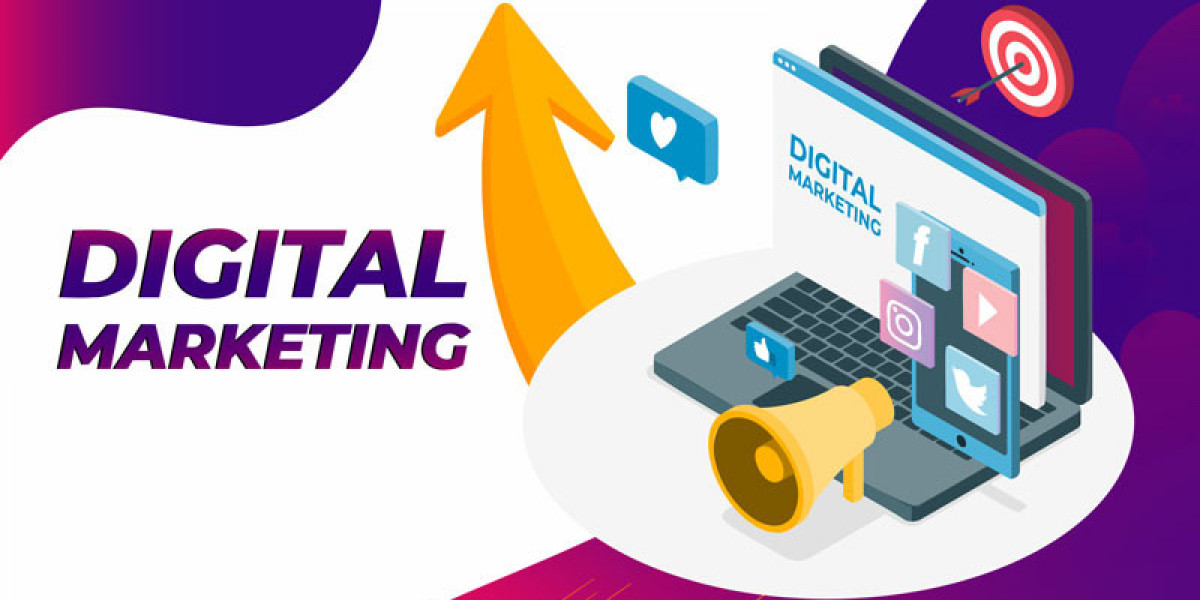In today's fast-paced and technology-driven world, businesses need to continuously adapt to stay ahead of the competition. One of the most powerful tools available to businesses is digital marketing. With more people relying on the internet for information, shopping, and socializing, digital marketing has become an indispensable part of business strategies. But what exactly does digital marketing entail, and how can it benefit a company? Let's delve into the various components that make up this vital service.
The Scope of Digital Marketing
Digital marketing covers a broad range of activities aimed at reaching customers through digital channels. It involves the use of the internet, mobile devices, social media platforms, search engines, and other digital technologies to promote products or services. Unlike traditional marketing, which typically relies on print ads, billboards, or TV commercials, digital marketing is more interactive, allowing businesses to engage directly with their audience.
Some of the most common types of digital marketing include:
Search Engine Optimization (SEO): This focuses on improving a website’s visibility on search engines like Google. By optimizing content with targeted keywords and ensuring the website is technically sound, businesses can increase their chances of ranking higher on search engine results pages (SERPs), ultimately driving more organic traffic to their site.
Pay-Per-Click Advertising (PPC): PPC is a form of online advertising where businesses pay each time a user clicks on one of their ads. These ads can appear on search engines or social media platforms, and they allow companies to target specific demographics with precision.
Social Media Marketing: With billions of people using social media platforms daily, marketing on platforms such as Facebook, Instagram, LinkedIn, and Twitter is crucial for businesses looking to engage with a wide audience. Social media marketing involves creating and sharing content that attracts and engages followers, ultimately boosting brand awareness and driving conversions.
Email Marketing: Email marketing remains one of the most effective ways to communicate with potential and existing customers. By sending personalized emails, businesses can build relationships, promote products or services, and keep their audience informed about promotions and updates.
Content Marketing: Creating and sharing valuable content, such as blog posts, videos, infographics, and eBooks, is an important aspect of digital marketing. Content marketing helps establish a business as an authority in its industry and drives traffic to its website.
Benefits of Digital Marketing
Digital marketing offers a variety of advantages over traditional marketing methods, making it an attractive option for businesses of all sizes. Here are some key benefits that businesses can gain by investing in digital marketing services:
Wider Reach: The internet is a global platform, enabling businesses to reach a broader audience compared to traditional marketing, which is often limited by geographic location. Whether you're a small local business or a large multinational corporation, digital marketing allows you to connect with potential customers worldwide.
Cost-Effectiveness: Digital marketing tends to be more affordable than traditional methods. For instance, running a PPC campaign or promoting content on social media can be significantly less expensive than running a television ad or placing billboards. This makes digital marketing an accessible option for small businesses with limited budgets.
Real-Time Results: One of the standout features of digital marketing is its ability to deliver real-time results. Whether you're tracking website traffic, monitoring social media engagement, or measuring the success of an email campaign, you can easily access data and make adjustments to improve performance.
Targeted Advertising: Digital marketing allows businesses to target specific audiences based on a variety of factors, such as demographics, location, interests, and online behavior. This level of precision ensures that marketing efforts are directed toward those most likely to convert, improving ROI.
Measurable Metrics: With digital marketing, businesses can track and measure the effectiveness of their campaigns through analytics tools. From website traffic to social media engagement, businesses can get detailed reports on their marketing activities and use this data to refine future strategies.
How Digital Marketing Can Boost Your Business
With a strategic approach to digital marketing, companies can not only increase their online visibility but also build meaningful relationships with their audience. Here are some ways in which digital marketing can contribute to the growth of a business:
Brand Awareness: Digital marketing provides businesses with the tools to promote their brand across a variety of platforms. By consistently sharing relevant content and engaging with followers on social media, companies can boost brand recognition and stay top-of-mind with their audience.
Customer Engagement: One of the most powerful aspects of digital marketing is its ability to foster two-way communication. Through social media comments, email responses, and even live chat on websites, businesses can engage with their customers directly and build strong relationships.
Lead Generation: Digital marketing techniques, such as SEO, content marketing, and PPC, can help generate high-quality leads for businesses. By targeting the right audience and offering valuable content, companies can attract individuals who are genuinely interested in their products or services.
Improved Customer Experience: Digital marketing allows businesses to personalize their interactions with customers. By analyzing data on customer preferences, behavior, and previous interactions, companies can tailor their messaging and offers to meet the unique needs of each individual.
If you are looking to boost your business’s digital presence, a good strategy is to partner with experts who specialize in digital marketing. For example, you can visit rifmdigital.com to learn more about how digital marketing can transform your business and help you achieve long-term success.
Key Trends in Digital Marketing
As the digital landscape continues to evolve, businesses need to stay updated on the latest trends and technologies that can enhance their marketing strategies. Some of the current trends shaping the future of digital marketing include:
Artificial Intelligence (AI) and Automation: AI tools are being used to streamline marketing tasks, such as content creation, customer segmentation, and ad targeting. Automation is also being employed to manage email campaigns, social media posts, and customer interactions more efficiently.
Video Marketing: Video content has become one of the most engaging forms of content online. From product demos to tutorials, video marketing helps businesses capture the attention of their audience and deliver messages in an engaging and memorable way.
Voice Search Optimization: With the rise of smart speakers and voice assistants, optimizing content for voice search has become increasingly important. Businesses need to ensure that their websites and content are structured to accommodate voice queries, which tend to be more conversational.
Influencer Marketing: Partnering with influencers can be an effective way for businesses to reach a wider audience. By collaborating with individuals who have a significant following on social media or other platforms, businesses can tap into their influence and promote their brand to potential customers.
By staying on top of these trends and continuously refining your digital marketing strategy, you can position your business for long-term success in an increasingly digital world.










